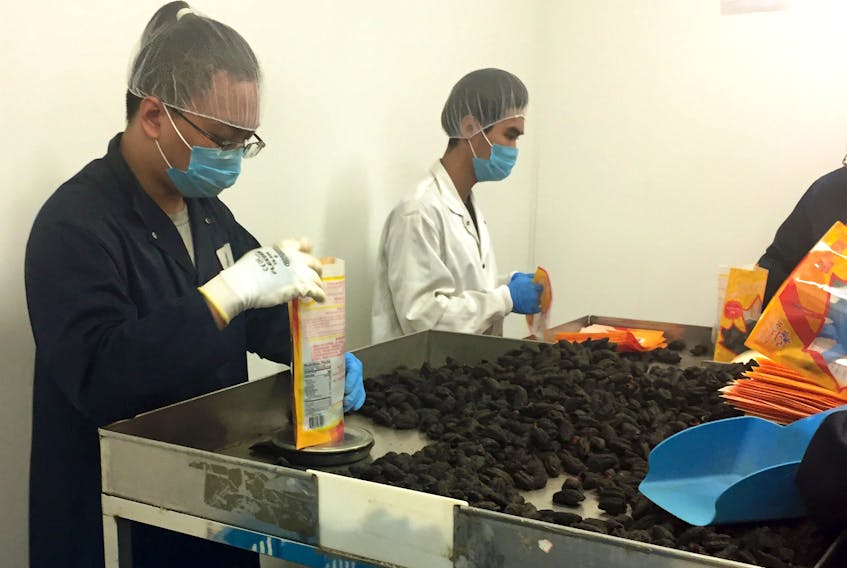OK, so many of you reading this have probably never eaten sea cucumber.
You may have touched one of the slimy, mysterious-looking tube-like creatures in a marine touch tank, but after doing so, you likely never gave much thought to eating it.
But a company called Atlantic Sea Cucumber now has thousands of people consuming the echinoderms — marine invertebrates, like star fish and sea urchins are — in capsulized form.
The company sold 12 million capsules in the past year alone. And, in July, the Retail Council of Canada named the sea cucumber capsules the best over-the-counter health product for 2019, because the marine animals are high in antioxidants.
The Nova Scotia-based company, and its sister company, AKSO Marine Biotech, harvest sea cucumbers off Cape Breton, dry them at a facility in Hacketts Cove, N.S., and then ship the dried product to Toronto to be turned into capsules.
Owner Sam Gao told SaltWire Network that if capsule sales progress as planned, he will set up a capsulizing factory in Hacketts Cove.
He sensed opportunity knowing that sea cucumbers have been part of the Chinese diet for more than 1,000 years and that they are better absorbed by the body in capsule form.
“Sea cucumber, in Chinese, means ginseng of the sea,” Gao explained.
His success with sea cukes is just one example of innovation happening across Atlantic Canada.
SaltWire journalists have highlighted many of these efforts in recent weeks. Among the stories they’ve told was one about a St. John’s man who is collecting plastic bottle caps and then sorting, shredding and melting them. He injects the plastic into moulds to create useful products such as flower pots, keychains and coasters.
In Cape Breton, a family is urging people to dream small while living large by renting out tiny houses on the Margaree River to tourists.
In New Brunswick, Moncton-based HOST Event and Association Management has pivoted to start organizing online conferences and trade shows, honing their expertise in another realm.
And on Prince Edward Island, a number of immigrant entrepreneurs are bent on succeeding in the food service business by offering residents new experiences and tastes.
It’s innovations like these that will help Atlantic Canada rebuild from this ongoing pandemic.
Two years ago, the Atlantic provinces were near the bottom of the Conference Board of Canada’s ranking of innovation across the country. All four provinces received a D- grade.
But there are plenty of signs of resilience and entrepreneurial spirit in this region in these pandemic days.
If you have an innovative idea that answers a need in today’s world, now might just be the right time to pursue it.
SaltWire Network









